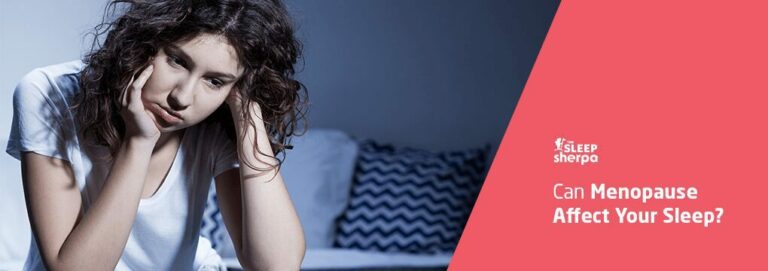Is There a Relation Between Menopause and Sleep?
Sleep can be elusive. Even minor disruptions can steal away the restful nights we long for. For instance, illness, stress, or excitement can easily lead to sleepless nights. When stress becomes a regular occurrence, or when medical conditions arise, the quality and quantity of sleep can suffer significantly.
Today’s women often juggle numerous responsibilities—balancing careers, raising children, and caring for aging parents—while remaining active in their communities. With such demanding lives, it’s no surprise that many women experience higher stress levels than men, impacting their overall well-being.
As women approach the ages of 35 to 40, many begin to notice the onset of perimenopause, the transitional phase leading to menopause. This stage is typically marked by various physical and emotional symptoms, including weight gain, mood swings, and perhaps most notably—insomnia. Indeed, the connection between menopause and sleep disturbances is a common concern among women.
Understanding Menopause: Symptoms and Stages
Menopause is not a sudden event; rather, it unfolds gradually, beginning around the age of 35 and potentially extending into the mid-40s or later. This transition is known as perimenopause, during which hormonal changes occur and impact various bodily functions. While some women may reach menopause earlier due to genetics, others may continue menstruating up to the age of 45.
Not every woman will experience the same symptoms; however, several changes are commonly reported, such as:
– Irregular Periods: One of the earliest indicators of perimenopause is irregular menstruation. As time progresses, cycles may become less frequent and lighter before vanishing altogether.
– Hormonal Fluctuations: Women often find that premenstrual syndrome intensifies during this transitional time, leading to heightened mood swings, tenderness, and bloating.
– Night Sweats and Hot Flashes: This symptom quite directly impacts menopause and sleep quality. Women may suddenly feel hot at night, leading to uncomfortable nights and disrupted sleep.
Other symptoms include heart palpitations, headaches, loss of libido, and trouble concentrating. The collective impact of these symptoms can make achieving restful sleep increasingly difficult.
The Hormonal Changes at Play
Menopause signifies a significant decline in the production of key hormones: estrogen, progesterone, and testosterone. These hormones don’t just regulate the menstrual cycle; they play a vital role in energy levels, mood stability, and cognitive function—elements crucial for a good night’s sleep.
Declining levels of estrogen and progesterone often lead to increased anxiety and disruption of the sleep-wake cycle. These hormones are integral in fostering relaxation and easing stress, so their loss can herald significant sleep challenges.
Effective Strategies for Managing Insomnia During Menopause
Not all women will face severe insomnia, but for those who do, it’s essential to take actionable steps toward better sleep hygiene. Instead of solely addressing insomnia as a standalone issue, it’s vital to identify and remedy the root causes.
Here are several strategies that women can adopt to improve their sleep during this challenging phase:
1. Establish a Consistent Sleep Schedule: Maintaining regular sleep and wake times helps your body establish a natural rhythm. Aim to go to bed and rise at the same times daily, even on weekends.
2. Prepare for Sleep: Wind down as bedtime approaches by engaging in calming activities—like a warm bath or light reading. Reducing screen time before bed helps signal to your brain that it’s time to rest.
3. Create an Optimal Sleep Environment: Adjust your bedroom to ensure it’s conducive to sleep. Lower temperatures can alleviate night sweats, while a comfortable mattress can support restful sleep. Consider keeping a fan or cooling device nearby for added relief.
4. Limit Stimulants: Avoid alcohol and caffeine in the hours preceding sleep, as these substances can hinder melatonin production and disrupt your natural sleep cycle.
5. Prioritize Relaxation: If you awaken during the night, do not stress about being unable to sleep. Instead, engage in a calming activity like reading—just avoid bright lights and screens.
Non-Medical Remedies for Insomnia Related to Menopause
Natural remedies can also play a significant role in alleviating sleep issues linked to menopause. These approaches include:
– Melatonin Supplements: These can help regulate the sleep-wake cycle.
– Mindfulness Practices: Techniques such as meditation and deep breathing can significantly lower anxiety levels and promote relaxation.
– Therapies like Acupuncture: These alternative practices can help balance hormones and improve sleep quality.
In some cases, healthcare providers may prescribe a mild dose of hormone replacement therapy (HRT) to alleviate symptoms. However, it’s essential to weigh the potential side effects and risks associated with HRT.
Conclusion: Navigating the Challenges of Menopause and Sleep
If menopause has begun to interfere with your sleep, know that you are not alone. The relationship between menopause and sleep issues is well-established, and addressing these challenges is crucial for your overall health and quality of life. By understanding your symptoms, making lifestyle adjustments, and seeking appropriate remedies, you can find relief and improve your sleep experience during this transformative stage of life. Don’t hesitate to consult with your healthcare provider to explore the best approaches tailored to your unique needs.

